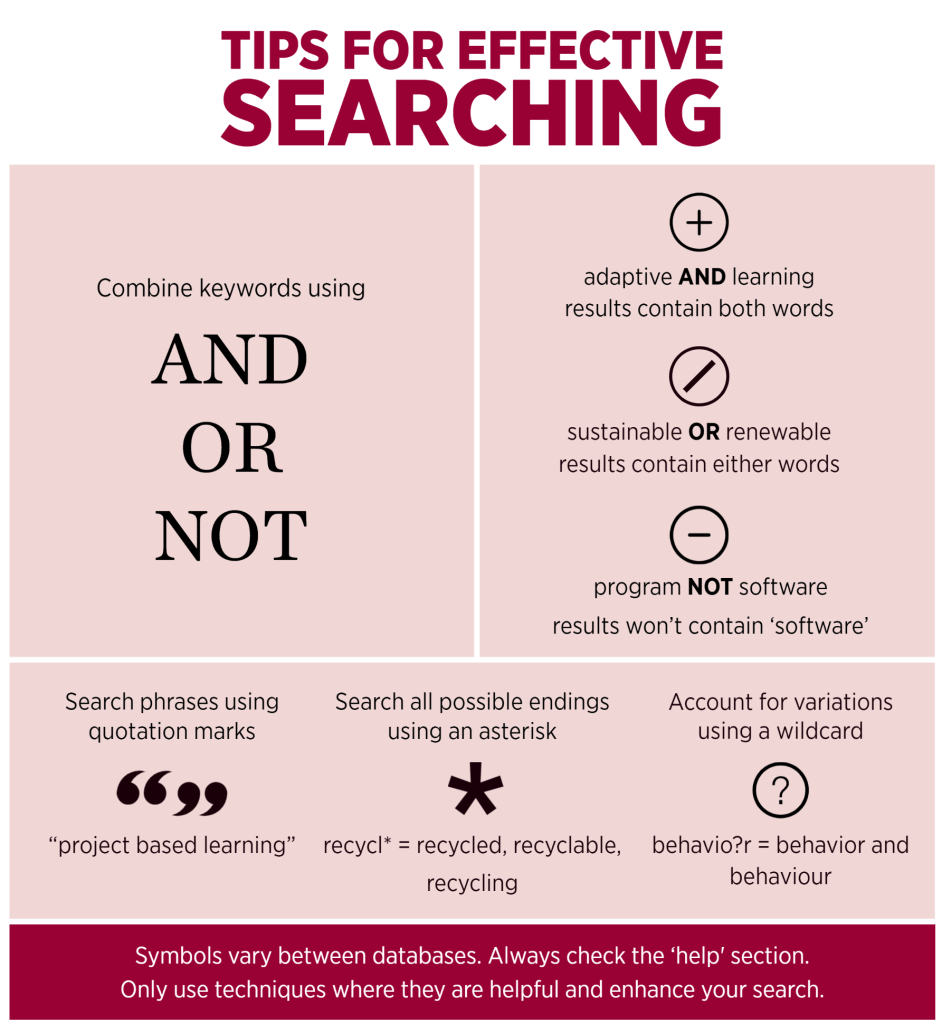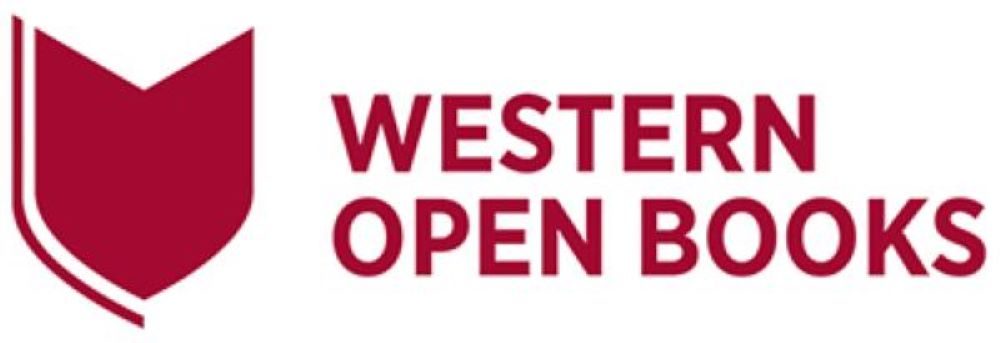6 Finding Information

For most of your assignments, you will need to find scholarly or peer reviewed information related to your topic in order to find out what researchers have said about it and develop your own ideas or perspectives.
Types of information
Different topic areas will require different types of information, such as scholarly and non scholarly sources. Each information source will serve a purpose for the assessment and topic area you are studying and needs to be assessed for quality and relevance.
Searching
- Before you begin, you need to identify or decide on the focus of your information search. What have you been asked to do?
- Next identify words and phrases which best describe the information you want to find then create a search strategy.
- Look at the help section of the database or search engine you are using for tips on how to get the most out the results.
- You may need to adjust your strategy a few times (e.g. adding or changing search terms).

See Appendix D for a full sized version.
Reference management
In your searching, you will come across many sources you want to use or keep and refer to later. Collecting and storing the references of your sources in a central location is good practice and can help you to be more efficient and avoid stressful situations (such as misplacing where a quote has come from).
Reference management tools such as EndNote, Zotero and Mendeley allow you to:
- organise your research and save time
- create a database of references
- automatically generate your in-text citations and references for assignments in a variety of styles.
Note: websites, search engines and databases that automatically generate citations and references are not always accurate. Always check and edit your references against the required referencing style guide available through the Library before submitting your assignment.

